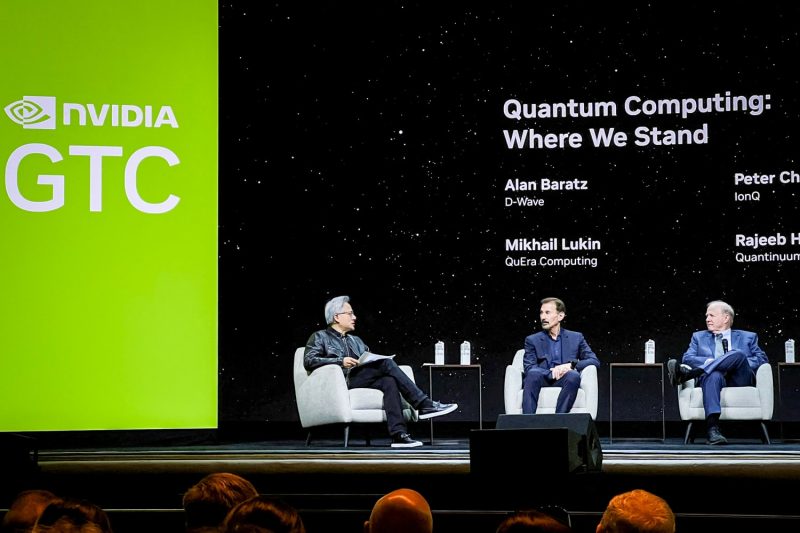Nvidia CEO Jensen Huang on Thursday walked back comments he made in January, when he cast doubt on whether useful quantum computers would hit the market in the next 15 years.
At Nvidia’s “Quantum Day” event, part of the company’s annual GTC Conference, Huang admitted that his comments came out wrong.
“This is the first event in history where a company CEO invites all of the guests to explain why he was wrong,” Huang said.
In January, Huang sent quantum computing stocks reeling when he said 15 years was “on the early side” in considering how long it would be before the technology would be useful. He said at the time that 20 years was a timeframe that “a whole bunch of us would believe.”
In his opening comments on Thursday, Huang drew comparisons between pre-revenue quantum companies and Nvidia’s early days. He said it took over 20 years for Nvidia to build out its software and hardware business.
He also expressed surprise that his comments were able to move markets, and joked he didn’t know that certain quantum computing companies were publicly traded.
“How could a quantum computer company be public?” Huang said.
The event included panels with representatives from 12 quantum companies and startups. It represents a truce of sorts between Nvidia, which makes more traditional computers, and the quantum computing industry. Several quantum execs fired back at Nvidia after Huang’s earlier comments.
A third panel included representatives from Microsoft and Amazon Web Services, which are also investing in quantum technology and are among Nvidia’s most important customers.
Nvidia has another reason to embrace quantum. As quantum computers are being built, much of the research on them is done through simulators on powerful computers, like those that Nvidia sells.
It’s also possible that a quantum computer would require a traditional computer to operate it. Nvidia is working to provide the technology and software to integrate graphics processing units (GPUs) and quantum chips.
“Of course, quantum computing has the potential and all of our hopes that it will deliver extraordinary impact,” Huang said on Thursday. “But the technology is insanely complicated.”
Nvidia said this week that it will build a research center in Boston to allow quantum companies to collaborate with researchers at Harvard and the Massachusetts Institute of Technology. The center will include several racks of the company’s Blackwell AI servers.
Quantum computing has been a dream of physicists and mathematicians since the 1980s, when California Institute of Technology professor Richard Feynman first proposed the idea behind a quantum computer.
While classical computers use bits that are either 0 or 1, the bits inside a quantum computer — qubits — end up being on or off based on probability. Experts predict that the technology will be able to solve problems with massive amounts of possible solutions, such as deciphering codes, routing deliveries or simulating chemistry or weather.
No quantum computer has yet beat a computer at solving a real, useful problem. But Google claimed late last year that it discovered a way to do error correction.
One question at the panel centered around whether quantum computing might one day threaten companies like Nvidia that make computers based on transistors.
“A long time ago, somebody asked me, ‘So what’s accelerated computing good for?’” Huang said at the panel. Accelerated computing is a phrase he uses to refer to the kind of GPU computers that Nvidia makes.
“I said, a long time ago, because I was wrong, this is going to replace computers,” he said. “This is going to be the way computing is done, and and everything, everything is going to be better. And it turned out I was wrong.”

